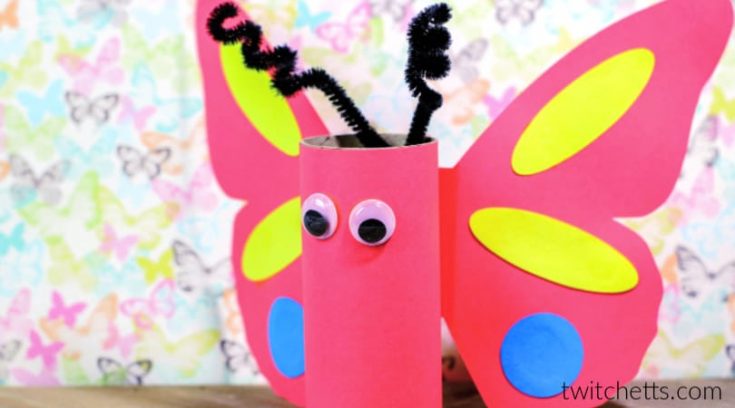
When you're looking for ways to make hand-eye coordination better, puzzles can help. Puzzles are a great way to improve hand-eye coordination. They also teach spatial perception and problem solving skills. The best part is that they teach children new things. Continue reading to find out more about puzzles and how you can make them more educational and fun for your kids. In this article we will talk about three benefits that puzzles can bring to children. Here are just a few of them.
Puzzles improve handeye coordination
Children who are able to solve puzzles can improve their hand-eye coordination. This is because their hands and eyes must cooperate. These skills allow the brain to carry out actions like writing and walking. They will need to use the skills they learn while solving puzzles in their future lives. They also develop fine motor skills, such as pinching, gluing, and picking up.
Children learn to break down larger tasks and set goals while playing with puzzles. They are taught to sort pieces by shape. This step-by-step approach teaches patience and the sense of accomplishment they feel when the last piece fits together. This skill is important for later success, especially in school. The process of puzzle playing also helps children to develop important social skills, such as cooperation and communication.

They improve problem-solving skills
Some puzzles can help improve problem-solving skills. Other puzzles are simply for fun. Puzzles can benefit your child's overall development, regardless of what they enjoy. Research suggests that puzzles may improve your child’s ability to think critically and develop logical reasoning. Puzzles are fun and can help your child work together as a team. Puzzles are a great choice for young children because of these three aspects.
While children are playing with puzzles, they are also learning about shapes, colors, patterns, and other important aspects of the world. Children improve their cognitive development and build their vocabulary by sorting, applying and combining this knowledge. They will learn how to interact with their environment, and what to do to improve their understanding of it. While they are at it, they will learn to work with others and share their strategies.
They improve spatial perception
Puzzles help children to improve their spatial perception. It is not clear exactly how. Some studies have suggested that puzzles aid spatial thinking. Others have found no such link. They did discover that children who play with puzzles for long periods of time are more likely learn spatial reasoning. Some of these benefits can be attributed to attention. Children with trouble shifting or sustained attention may have difficulty learning spatial reasoning.
The new study found that boys engage more in spatial play than girls. These activities include puzzles and blocks as well as board games. The exact mechanism of spatial reasoning is still being studied. This finding could have implications for both parents and educators as well. But, they warn that further research is necessary before any conclusions are drawn. This study calls for more research to find the best educational strategies that children can use.

They enable children to learn new things
Puzzles are an excellent way to teach children new things, and there are plenty of educational benefits to be gained. Puzzles develop problem-solving skills as children strategize to fit pieces together. They also teach children to make quick decisions and use their observational skills. Puzzles are a great activity for kids who love learning new things. Here are some positive benefits to puzzles for kids. Learn more about how puzzles help children learn new skills!
Math, reading and other subjects are greatly affected by the cognitive skills that your child acquires while solving a puzzle. Puzzles allow children to discover new shapes, animals, or themes. These skills are crucial in any subject area so puzzles can be a great tool to help develop them. Children learn to recognize patterns through repetition, which helps them build confidence. Puzzles are an enjoyable way to spend family time. Simple games like racing through a maze, or solving a riddle, can encourage family bonding.
FAQ
What are competitive hobbies, you ask?
There are many competitive sports, including running, swimming and cycling, as well as golfing, tennis and other activities.
These games are often played by people who enjoy exercise but also offer the opportunity to interact with others.
If your hobby involves physical activity, you will likely find other people who share it.
You might consider joining a group or club that meets regularly to play together in sports.
You may also want to play in a team game, where you are playing with others.
These include netball (soccer), football (cricket), netball (basketball), hockey, baseball, volleyball and badminton.
There are many types of competition.
Some competitions may be held for pure recreational purposes.
Others are designed to test the skill of competitors.
Some are even designed to reward outstanding performance.
In these cases, winners receive prizes.
Other competitions aim to assess the strength and endurance of competitors.
These are endurance events.
For example, marathon races, triathlons, Ironman Triathlon, etc.
Before participating in these events, athletes often train hard.
They will follow a strict training program to prepare themselves mentally and physically.
They may need to spend some time out of their home for preparation.
It is important to remember, not all athletes will compete in every type and event.
What are collection hobbies?
Books, movies music, comics and video games are some of the most popular collections.
You can also find stamps, coins, cars and dolls as well model kits and figurines.
I think you get the point.
Which hobbies are most in demand right now?
Popularity does not always mean that you are popular. It is often used to excuse mediocrity. Most people don’t have the time to pursue any hobbies they desire. They are always too busy to earn a living. What can you do if your time is limited? You could start your own company.
This isn’t easy. You will need to overcome many obstacles before your idea can become a reality.
So if you're looking for something more exciting than running a business, you should consider pursuing a hobby.
Hobbies do not have to be limited to creative pursuits. There are many different kinds of hobbies available. Some of these include:
-
Gardening
-
Cooking
-
Photography
-
Reading
Why do we need hobbies?
Hobbies are a vital part of our lives as they allow us to unwind, relax, think creatively and exercise. They also give us the opportunity to socialize, network, and have fun. We also have the chance to learn new skills and pursue lifelong passions.
Hobbies can help us find meaning and purpose.
They are great for spending your free time when there's not much else.
And they're fun!
If you don’t have the time to do a hobby, you likely don’t have any other hobbies.
Look at all the options. Maybe you should consider starting a hobby.
Where can I get free resources to learn more?
There are many websites dedicated to helping people discover new hobbies.
Here are some of our favorites:
www.trythisathome.com - This site provides a list of over 100 different hobbies. This site also contains information on how you can get started with each of them.
www.hobbyfinders.org is a site that offers thousands of activities. It allows you to search by location, skill level and interest.
www.indiebazaar.co.uk - IndieBazaar is an online marketplace designed specifically for independent artists and musicians. The site has hundreds of products, from artwork to music equipment.
www.pinterest.com/explore/hobbies - Pinterest is a social media network that lets users "pin" images they find interesting onto their boards. Users can organize the things they like in specific categories with boards.
www.reddit.com/r/Hobbies Reddit is another social networking platform that allows users to link to articles, videos or other content. Users can vote on which posts they think are most valuable.
What are some great hobbies ideas?
Hobby Ideas for People who Love to Learn and Teach Others.
Hobbies are a great way for you to do what you love and also learn something new.
While there are many types of hobbies available, most share the same characteristics. They are usually enjoyable activities that don't require a lot of effort and can be very economical.
These include working with others to teach someone how to use an instrument or build an airplane.
Although you might not consider yourself a teacher, there are likely things you can do to help others learn.
You can make a difference in the lives of others by starting a hobby.
Is it possible making a living as a hobby?
Not necessarily.
But if your passion is to start a business, you might be able to make a lot of money.
Let's suppose you enjoy cooking. You love healthy food so you open a new restaurant.
You serve only organic meals made from scratch and charge customers a small fee to cover the costs of ingredients and labor.
As you build your clientele, you eventually hire employees to help you.
You may eventually add vegan dishes and gluten-free options to your menu.
In this situation, you have a successful business which has allowed you the freedom to lead the lifestyle that you want.
This doesn't mean that you have to give up your job.
You could also run your restaurant, while still maintaining your 9-5 job.
Statistics
- The Role of the Mind in Sex, Dating, and Love: Men in the “humor” condition received phone numbers from 42.9% of the female participants and were refused 57.1% of the time. (time.com)
- Almost 80% of people claim to have no hobby. (hobbylark.com)
- The intensity of the dialogue partners' bond at the end of the forty-five-minute vulnerability interaction was rated as closer than the closest relationship in the lives of 30 percent of similar students. (time.com)
- Studies show that just six minutes of reading can reduce stress levels by 60 percent. (oberlo.com)
- A new survey by Pew Research Center of teens ages 13 to 17 finds that 36% of girls feel tense or nervous about their day every day; 23% of boys say the same. (pewresearch.org)
External Links
How To
How to learn a musical Instrument
There are many options for learning how to play the piano. You could attend a school, read a book, get lessons from someone who plays a musical instrument, or look at videos online. Here are some tricks and tips to help you find your way.
-
Find something you are interested in. If you don't like any of the instruments you see around, then you should try another one. If you don’t enjoy playing an instrument it will be hard for you to get into it.
-
Be patient. It takes time to learn something new. Do not expect to be able to master every aspect of the subject immediately. Instead, keep practicing every day.
-
You should practice often. This can be done even when you are tired. This will make sure you don't forget the lessons you have learned.
-
You should choose a comfortable place to practice. The ideal place to practice is one that is quiet and won't be disturbed by anyone else. Also, make sure that there aren't too many distractions. For example, avoid having loud music playing nearby.
-
Have fun. Music should be enjoyed. It is important to have fun when practicing. Enjoying yourself will motivate you to continue going at it.
-
Set goals. If you set goals, then you will know exactly how you want to get there. You will never be ashamed to fail.
-
Keep track of your progress. Keep track of all your successes and failures. You will be able to improve your skills over time by writing down all of your achievements and failures.
-
Take breaks. Sometimes you just need to take a break. You will be able to take breaks and think about the things you are doing.
-
Ask questions. Ask other people if you have any doubts or confusion regarding certain aspects of the instrument. They might be able to assist you.
-
Listening is the best method to learn. Many musicians listen to songs that they like and imitate them. This helps them understand basic concepts behind the song.
-
Read books. You will learn more from reading books than you can by watching videos or attending classes. Books can also provide information that is not available elsewhere.
-
Join a band. Playing with others will force you to practice more. Plus, you will find people with similar interests to you.
-
Watch tutorials. Tutorials are videos that provide detailed explanations of various topics. These tutorials usually concentrate on one particular aspect of an instrument. Tutorials can help you understand complex parts of your instrument.
-
Different methods are possible. Some prefer to learn by listening, while others prefer reading. Find what works best for your learning style.
-
Practice makes perfect. Nobody becomes an expert overnight. Instead, you must put in lots of effort before becoming skilled enough to perform well.
-
Get along with other musicians. You can learn faster by listening to other musicians play your favorite songs.